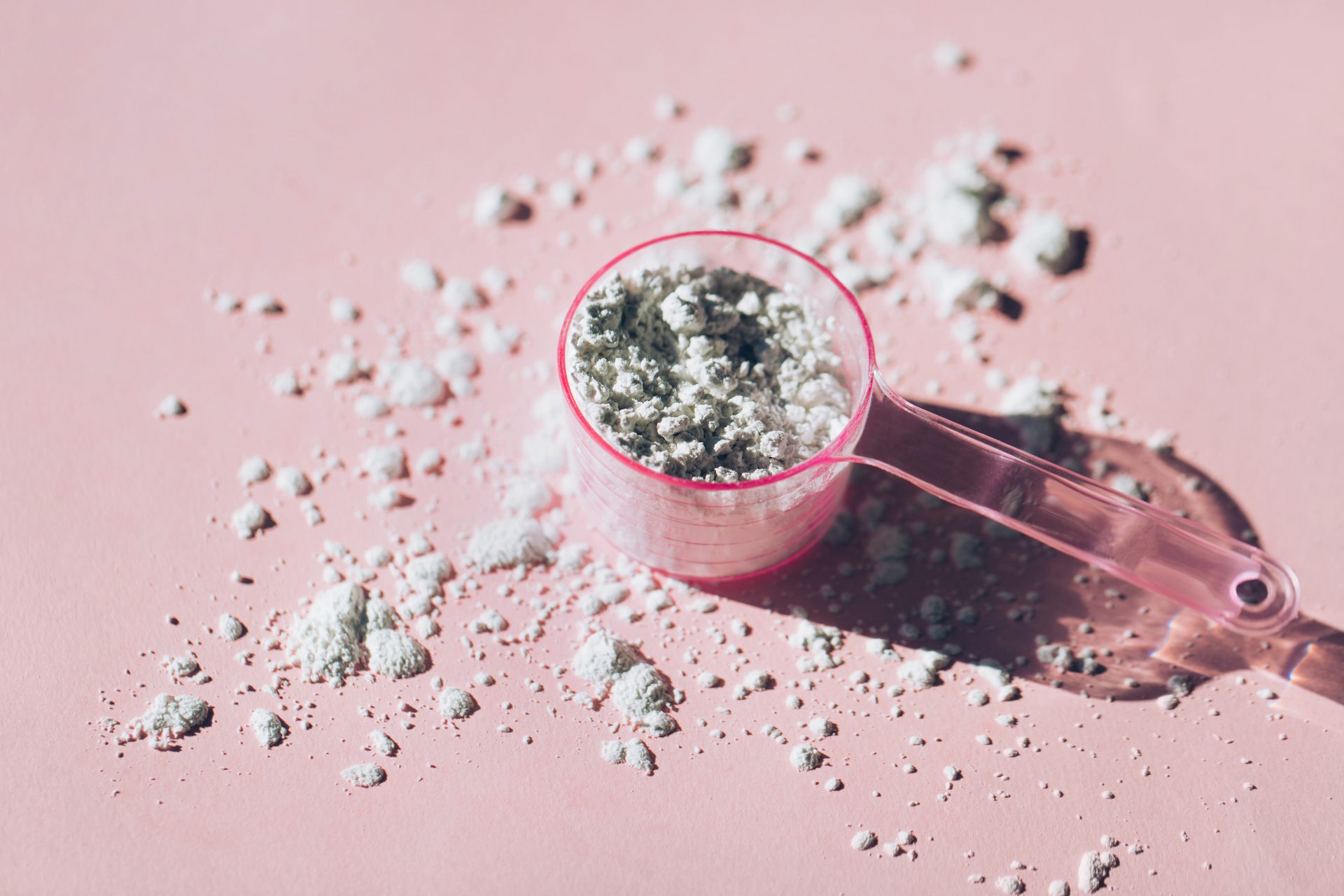With so many sports supplements on the market, it can be difficult to decide which ones are really worth trying. Do we really need to take them or are they more hype than healthy?
Sports nutrition can get a bad rap, but sports supplements are about so much more than building enormous muscles. With more of us than ever enjoying strength training and endurance exercise, sometimes we need a helping hand. Good quality, well researched and nutritionally balanced supplements can offer our bodies extra support, but do we really need to be taking them?
Here’s our guide to the exercise supplements that might be worth your money.
Are sports supplements really necessary?
In an ideal world, for the average person – assuming moderate levels of weekly physical exercise – a healthy, balanced diet should be meeting all your nutritional needs. But the reality is that we’re leading increasingly busy lives, and sometimes, we all need a helping hand to achieve our nutritional goals.
“Ensuring you are taking the right supplements and consuming a balanced and healthy diet can have a real impact on your performance in the gym as well as on your muscle growth and recovery,” agrees Andrew Telfer, a personal trainer and head coach of Wild Strong.
“Of course it’s possible to get good results without supplements,” explains Dr Adam Carey, chief medical officer for Indi Supplements. “But you have to be extremely good at food planning and preparation. In a time-pressured world, many of us have found convenient, simple-to-use products a game changer.”
You may also like
Do BCAAs really work? The truth about whether you really need this sports supplement
Before deciding which supplements to try, it’s important to work out what type of support you’re after.
“Supplement strategies are totally dependent on your training programme and activity goals,” says Dr Carey. “Sports nutrition micro- and macro-nutrients are not a magic bullet. You have to be clear about your activity goals, where you might need help from a product and do the training required to deliver the results.”
Pre-workout boosters
Caffeine
The positive impact of caffeine on exercise output is well known, and energy drinks and pre-workout supplements containing caffeine have been shown to enhance exercise performance by improving endurance, speed and muscle strength, alongside improved physical performance.
Caffeine is also helpful for cognitive function, not to mention its popularity with those of us who are struggling to get enough sleep, so it can be a useful addition to your workout nutrition.
Supplements can support muscle mass
“Power-based athletes looking to increase their lean muscle mass may want to use additional protein for short periods of time,” advises Dr Carey. “Micronutrients like creatine also help to support energy production and cell volume.”
Creatine
“Creatine can help your muscles to produce energy, therefore helping you to exercise for longer and recover faster,” explains Telfer. “It can also support muscle repair and growth under stress. It can come in many different forms, including powders, gels or pills, and it’s also found in small doses in foods such as meat and eggs. However, to get an effective dose, opt for a high-quality supplement.”
Protein powders
Protein is essential for growth and repair. Supplementing your diet with high-quality whey or vegan proteins, such as pea protein, are an affordable and easy way to ensure that we’re efficiently repairing muscle fibres post-exercise and supporting new tissue growth.

Vitamins and minerals
Vitamin C
“Vitamin C is essential for many bodily processes and is key in supporting immune function as well as being a powerful antioxidant,” advises Telfer.“It’s an essential part of muscle recovery and if consumed regularly, can reduce DOMS after a workout.”
Alongside a good quality supplement, it’s good to up your intake of Vitamin C rich fruits and vegetables including blueberries, oranges, and peppers.
Vitamin D
“The body uses Vitamin D to create and maintain strong bones, teeth, and muscles,” explains Telfer. “Athletes who take Vitamin D are less likely to sustain injuries such as bone fractures and lose muscle mass,” he says.
In the UK, most individuals cannot get sufficient levels of Vitamin D from sunlight so the current government advice is to take a supplement all year round.
Cordyceps
A parasitic fungus and the inspiration behind the brain infection that devastates the world of The Last Of Us, we’re reasonably confident that in its supplement form, cordyceps won’t turn you into a zombie. “Cordyceps have long been used in traditional Chinese medicine to deal with various health ailments including nausea and low libido,” says Telfer. “However, recent research suggests that they can also help to improve athletic performance by providing a natural energy boost, but without the jitters or crash that can come with stimulants such as caffeine.”
You may also like
Best supplements for women: does your vitamin supplement regime need to change with the seasons?
Supplements for joint health
Omega-3
Granny was right: fish oils really are good for you. Proven to improve flexibility, fish oils are rich in omega-3 fatty acids that support joint health and can help reduce inflammation due to exercise or other stressors.
Algal oil
Good news if you’re vegan, Algal oil has been shown to be just as beneficial as fish oils, with a good balance of essential fatty acids to support joint health, without the fishy aftertaste.
Recovery support supplements
“All athletes need to recover,” advises Dr Carey. “Acute nutrition post-training – usually in a two or three to one ratio of carbs to protein – speeds recovery and allows for greater training volumes.”
Magnesium, zinc and potassium
Alongside your sweet potato and avocado, think about supplementing with magnesium to support healthy sleep; zinc, which supports the immune system post-workout; and potassium, which could help to reduce muscle cramps and regulate blood pressure.
Less is sometimes more
Finally, Dr Carey stresses that it’s important to remember more is not always better. “If you don’t know what you are doing, seek advice from a qualified nutritionist.
“You need to know what you are taking, so use a reputable brand. ESSNA (the European Specialist Sports Nutrition Alliance, which is the sectors trade organisation) membership is a good place to start. If competing in sports where you might be drug tested, using an Informed Sports-accredited product would be a sensible move.”
Images: Getty
Source: Read Full Article
